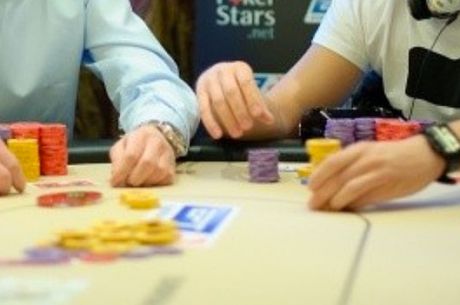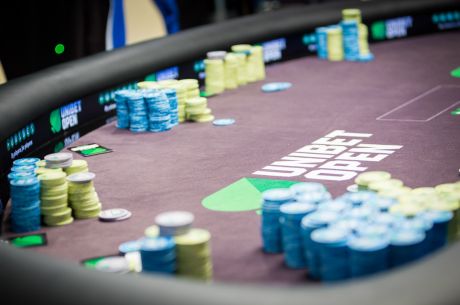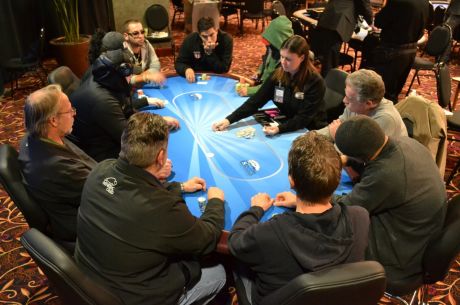Still More Angle Shooters, and How to Defeat Them
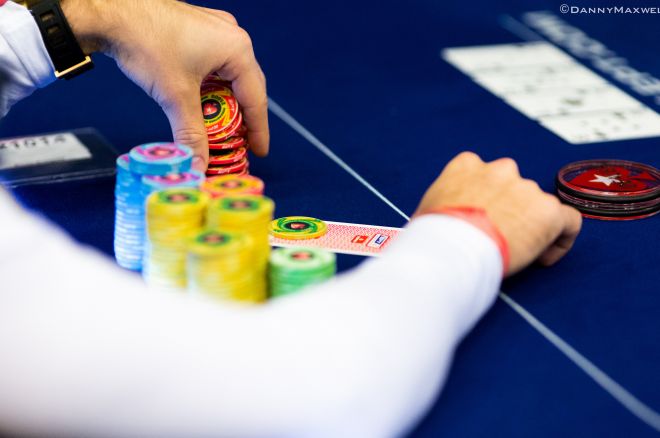
I was pleased to see that my previous article on spotting and foiling angle shooters received plenty of comments. Some were suggestions about other tricks used unethically at the poker table, while others were just venting about how much they loathe the players who use them. I think it��s worth looking at more such dirty moves, so as to avoid falling victim. Here are five more to watch out for:
1. The false declaration
It��s showdown. Your opponent announces some strong hand, like a flush or full house, without exposing his cards. He hopes that you will give up and throw your cards in the muck in disgust. He will then claim the pot because he has the last live hand, and if the dealer makes him show his hand, it is usually nothing more than about ace-high. If challenged, he will claim to have misread his cards or the board �� ��an honest mistake,�� he��ll say.
This is a situation where, if you fall for his trick, you��re screwed. Your cards are gone and you can��t take the pot. So don��t fall for it! Poker players lie all the time. Just assume they��re always lying, and you��ll usually be right. Don��t take anybody��s word for what they have; seeing is believing. Only release your cards to the dealer after actually verifying that you have lost.
2. ��Two pair��
Closely related to the above, this move is pulled when there is a pair on the board. At showdown, anybody with a pocket pair or one card that pairs one of the community cards does, in fact, have two pair. So it��s not a false declaration in the same way that it is when somebody claims to have a flush when his actual hand is ace-high.
The catch is that many players, especially those who are fairly new to poker or who aren��t paying careful attention, will not think of the pair on the board as one of ��theirs.��
Consider two theoretical hands. In the first, you have K?J? in your hand, and the board is K?J?7?4?2?. In the second, you have J?J? in your hand, and the board is K?K?7?4?2?.
Obviously in both situations your final poker hand is exactly the same: two pair, specifically, kings and jacks with a seven. But the two hands feel quite different. The first really does feel like a two-pair hand. The second feels like you own just one pair, though you also get to use the pair on the board.
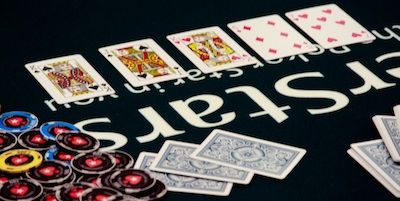
It is that difference in how you tend to think of your hand that this angle shooter is exploiting. He knows that many players will mistakenly think of the latter kind of hand as one pair, and will, as a result, feel that it must be a loser to a two-pair hand.
If you don��t think through a situation such as that in the second hand described, you might conclude that you have lost, and muck your jacks, only to find �� too late �� that the ��two pair�� guy had something like Ax7x, for a lower two-pair hand than yours.
Not everybody declaring ��two pair�� in that situation is deliberately trying to trick you into throwing away a better hand �� but some of them are, so watch out. Make sure both hands are tabled and that yours is actually the loser before relinquishing your cards.
3. Oversize chip
The ��oversize chip�� rule (or ��one chip rule��) says that if you are facing a bet and put out a single chip that is large enough that it could be construed as either a raise or just a call, it will be deemed just a call unless you have made a verbal declaration of a raise before the chip hits the felt.
Some angle shooters take advantage of this rule in an underhanded way. They deliberately call a bet with an oversized chip, but say ��raise�� after the chip has been put out. They make it look and sound as if they either didn��t know about the standard rule, or forgot to make the announcement until just a bit too late �� an unfortunate ��accident.�� They know that the rule will require that the action be declared just a call. They may act disappointed or frustrated, or even engage in mild protest at that ruling, to help sell the ruse.
The idea is to get you to believe that a raise was intended, when really the only intention was to convince you that there��s a stronger hand in play than is really the case, so that you��ll be intimidated into not betting on the next street.
As with many of the moves we��ve discussed, the exact same thing often happens innocently. There��s no reliable way to tell the genuine mistake from the angle shoot, except by the experience of the player and whether it seems to recur frequently. Because of that, there��s not really anything you can do about it, except be aware that it might be an act calculated to cow you into passive play. If a highly experienced player does this, be suspicious that he just wants a free card on the next street. Don��t give it to him!
4. Ambiguous declaration
This angle shooter doesn��t use clear, simple verbal declarations of action, such as ��call�� or ��fold.�� Instead, he concocts some mealy-mouthed sentence that sort of sounds like a declaration of action, but allows him to rescind it later.
For example, you have the nuts and bet the river. Your opponent acts uncertain about what to do. He then says something like, ��I guess I��m going to have to call.�� He hopes that you will accept this as a call and expose your hand. But when he sees that he��s beat, he will protest that he had not actually called. No, sir �� he was just thinking out loud, and was considering calling, but had not made up his mind yet. It was your fault that you misunderstood.
Angle shooters sometimes get away with this. It depends on the exact wording they used, and how tolerant the dealer and floor person are of that kind of nonsense. Which means that you can��t count on being rescued here and claiming the chips for the final call. As is so often the case when there is ambiguity, your recourse is to get the dealer to resolve it for you before you react.
5. ��You got it��
Here��s the scenario: It��s fifth street. Your opponent has bet, and you have called. Without showing his cards, he says something like, ��You got it,�� or ��You win,�� implying that he was bluffing and anything you called with must be better than what he has.
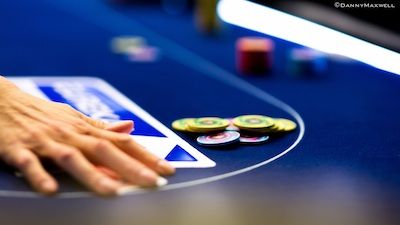
He hopes that you will overlook the fact that his cards are still in front of him or in his hand, and very much live. He also hopes that you will return your cards to the dealer without showing them, in the belief that you have won the pot. He will then turn his crappy, good-for-nothing cards face up on the table and claim the pot, because he has the last live hand, yours having been killed when the dealer stuffed them into the muck.
The unfortunate thing is that he will be right, and you will lose the pot that should have been yours.
The counter to this move is straightforward: Since your opponent took the last aggressive action, and you just called, the obligation to show first is on him. You can and should politely insist that he either show his cards or muck them. If he shows, then you can table a superior hand and win the showdown. If he knows he can��t win, and elects to muck them without showing, the dealer will push you the pot because you have the only live hand left.
(Note: Some poker rooms will insist that you show your hand in this situation. It��s a stupid rule because if you refuse, who else can rightly claim the pot? But you may have to go along with it anyway.)
Angle shooters are everywhere in poker, so, as Sergeant Phil Esterhaus used to tell his patrol officers every week on Hill Street Blues, ��Let��s be careful out there.��
Robert Woolley lives in Asheville, NC. He spent several years in Las Vegas and chronicled his life in poker on the ��Poker Grump�� blog.
Want to stay atop all the latest in the poker world? If so, make sure to get PokerNews updates on your social media outlets. Follow us on Twitter and find us on both Facebook and Google+!

